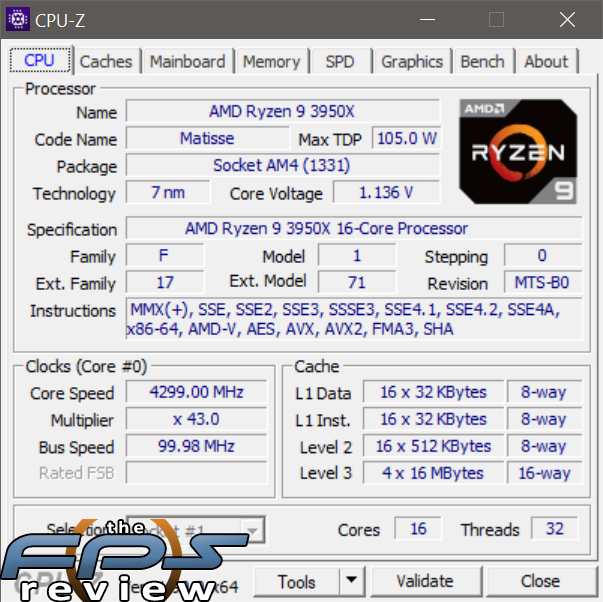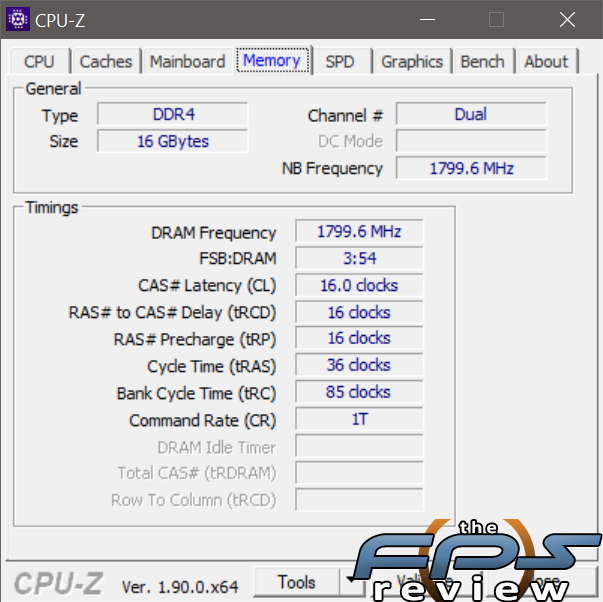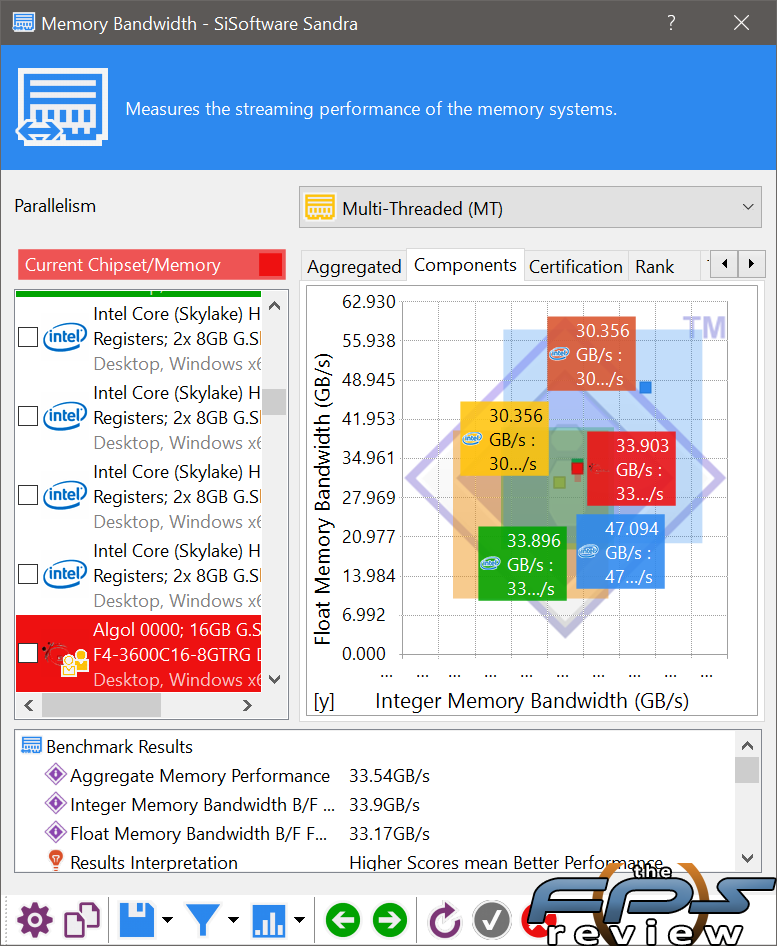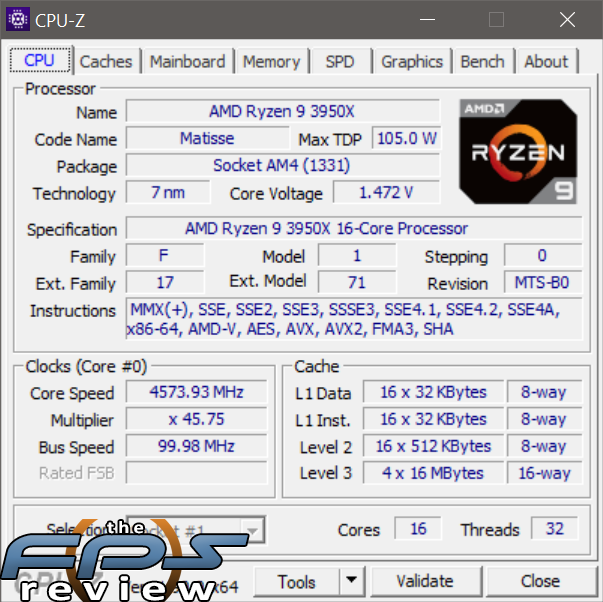Overclocking
Overclocking is exactly the same as it is for any other Ryzen 3000 series CPU. That is to say, that outside of per CCX overclocking, you are largely wasting your time. The Ryzen 9 3950X we had on the bench could hit the same all core overclock of 4.3GHz that we saw from our 3900X sample back in July 2019. However, doing so only benefits you in specific multithreaded workloads. You also tend to lose performance in several applications doing so. With Ryzen Master, this is generally easy to deal with as you can switch back and forth to whatever you need. A reboot might be required, but it can be done relatively easily.



I will say that not much is needed here. The same 1.4v vCore and otherwise automatic settings are all you need to achieve a manual all-core overclock. In Ryzen Master, simply setting the system to manual and then tuning all the CPU cores was pretty much all I had to do. As is the case with other Ryzen 3000 series CPU’s, setting your voltage to 1.4v only limits the voltage that the system will use to that value, rather than always applying it. Achieving greater clocks requires more voltage, but unfortunately, you run out of thermal headroom doing so.

As it is, the base clocks of this CPU are lower than that of the 3900X in order to keep the TDP the same. Sadly, because of the time constraints we are often under, I didn’t have time to engage in per CCX overclocking, so I can’t commend on the benefits of that. Theoretically, I don’t think it would be all that useful in most cases. I think you are generally better with PB2 and getting the highest single-core boost clocks possible. If your gaming and doing general desktop work, I think that’s the best route to go. Speaking of boost clocks, as stated earlier, I only saw clocks as high as 4.573GHz and never the actual 4.7GHz value.
These CPUs aren’t that difficult to cool in a sense but make no mistake, you will need a good AIO to deal with this thing. Ultra-high end air coolers might get things done, but I think you’ll be leaving at least 100 or 200MHz of boost clock on the table. Some people on the forums have reported seeing clocks of around 3.9GHz or so all core in Cinebench. In contrast, I saw 4.1GHz+ routinely. Its also worth pointing out that under the same conditions, I saw 4.15GHz on the 3900X. This CPU can also reach 85c pretty easily, so thermal limits are real. I’ll talk more about that shortly.
In a sense, overclocking on the Ryzen’s just isn’t all that interesting. They all run into roughly the same wall and the same limitations in my experience. That said, you do get something in an all-core overclock, but only with specific applications. Per CCX may be worth exploring and its actually quite a lot of fun to tune your Ryzen. Especially from the memory side of things as the Ryzen’s seem to benefit more than Intel CPU’s do from this.
